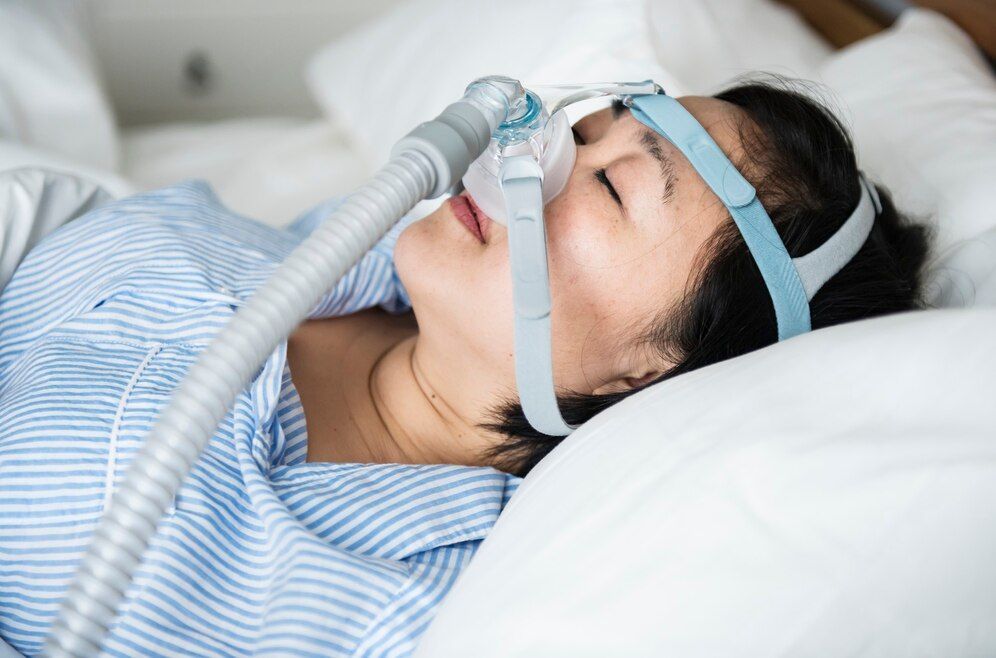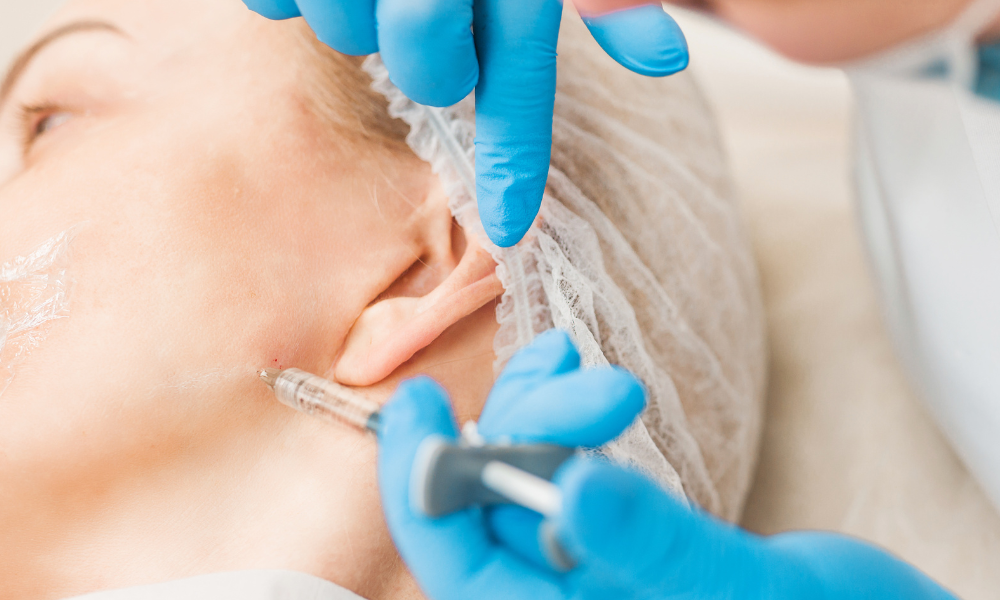
The interplay between stress and health is complex and indisputable. Elevated stress levels can negatively impact various aspects of physical and mental well-being, including sleep quality and the management of chronic pain conditions like temporomandibular joint (TMJ) disorders. While stress is not the root cause of sleep apnea and TMJ disorders, managing stress can be an effective approach to control symptoms and enhance the outcome of more traditional treatment methods.
In this blog post, we will explore the connections between stress, sleep apnea, and TMJ disorders, and discuss practical stress management techniques that can improve overall health and well-being in individuals affected by these conditions. Incorporating effective stress management strategies into your daily routine can help alleviate symptoms, promote relaxation, and improve sleep quality, ultimately offering a more comprehensive approach to managing sleep apnea and TMJ disorders.
Sleep apnea is a sleep disorder characterized by recurrent pauses in breathing during sleep, often resulting in disrupted sleep patterns and reduced oxygen levels, which can contribute to fatigue, cognitive difficulties, and other health complications if left untreated. TMJ disorders involve conditions affecting the temporomandibular joint, the hinge connecting the lower jaw to the skull, which can cause pain, discomfort, and reduced jaw function.
At Columbia Center for Sleep Apnea and TMJ, we recognize that a multidimensional approach to treating sleep apnea and TMJ disorders must address the role of stress in symptom management. Dr. Jared Bloxham is committed to providing personalized care that incorporates stress management techniques in concert with other treatment strategies, empowering our patients to take control of their health and experience long-lasting relief from symptoms.
1. The Connection Between Stress and Sleep Apnea
Stress can negatively impact sleep quality and exacerbate sleep apnea symptoms through a variety of mechanisms. When the body is under stress, it releases stress hormones, such as cortisol, which can interfere with the body's ability to fall and stay asleep. Poor sleep quality and sleep deprivation can further exacerbate stress levels, creating a vicious cycle. Additionally, stress can lead to an increased likelihood of developing unhealthy habits, like smoking or excessive alcohol consumption, that can worsen sleep apnea symptoms. Recognizing the connection between stress and sleep apnea is the first step in implementing effective stress management strategies, ultimately supporting the management and treatment of this sleep disorder.
2. How Stress Can Exacerbate TMJ Disorder Symptoms
Stress can play a significant role in the severity and chronicity of TMJ disorders, as it contributes to muscle tension and inflammation, which in turn can exacerbate pain and discomfort. When stress levels rise, the muscles in the jaw may tense and clench involuntarily, placing added strain on the temporomandibular joint. Moreover, elevated stress levels can lead to a decreased pain threshold, making TMJ disorder symptoms feel more severe than they may be under less stressful circumstances. Incorporating stress reduction techniques into a comprehensive treatment plan can help decrease muscle tension, reduce inflammation, and ultimately provide relief from TMJ disorder symptoms.
3. Practical Stress Management Techniques for Sleep Apnea and TMJ Disorders
Implementing effective stress management techniques can be transformative for individuals struggling with sleep apnea and TMJ disorders. The following strategies can provide relief from stress, improve sleep quality, and help control symptoms associated with these conditions:
- Exercise regularly: Regular physical activity helps release endorphins, reduce stress, and improve sleep quality. Aim for at least 150 minutes of moderate aerobic exercise or 75 minutes of vigorous aerobic exercise per week, along with muscle-strengthening activities on two or more days per week.
- Prioritize relaxation techniques: Engage in daily relaxation practices, such as deep breathing exercises, progressive muscle relaxation, or meditation. These techniques can help calm the mind, reduce muscle tension, and promote relaxation, supporting sleep quality and TMJ disorder symptom management.
- Establish a consistent sleep schedule: Creating a consistent sleep-wake schedule and adhering to it, even on weekends, can help regulate your body's internal clock and improve sleep quality.
- Create a calming sleep environment: Make your bedroom a relaxing space by limiting noise, reducing light exposure, and using comfortable bedding.
- Limit screen time before bed: Exposure to the blue light emitted by smartphones, tablets, and computer screens can interfere with the body's production of melatonin, a hormone that helps regulate sleep. Try to limit screen exposure during the hours leading up to bedtime.
4. Seeking Professional Support for Stress Management
Sometimes, managing stress on your own can feel overwhelming and may not be sufficient to provide the relief needed. In these cases, seeking professional support can be an essential component of treating sleep apnea and TMJ disorders effectively. Potential sources of professional assistance include:
- Psychotherapy: A trained therapist can help you develop personalized stress management strategies, teach you coping mechanisms, and provide guidance in identifying and resolving the root causes of stress.
- Biofeedback: This technique involves using specialized equipment to monitor physiological responses to stress, helping you develop greater control over these reactions. Biofeedback can be especially helpful in managing muscle tension associated with TMJ disorders.
- Acupuncture: Acupuncture is a complementary therapy that may help relieve stress and muscle tension, potentially offering benefits for individuals with sleep apnea and TMJ disorders.
- Support groups: Connecting with others who experience similar conditions can provide emotional support and practical advice regarding stress management and symptom relief.
Conclusion
Incorporating stress management techniques into a comprehensive treatment plan for sleep apnea and TMJ disorders can offer transformative benefits for individuals struggling with these conditions. By combining practical stress reduction strategies with the expert care provided at Columbia Center for Sleep Apnea and TMJ, patients can experience lasting relief from symptoms, improved sleep quality, and greater overall well-being.
Begin your journey towards comprehensive symptom relief and a more balanced, stress-free life by scheduling an appointment with Dr. Bloxham at Columbia Center for Sleep Apnea and TMJ. Contact us today to discover our holistic approach to
sleep apnea solutions in Richland.











